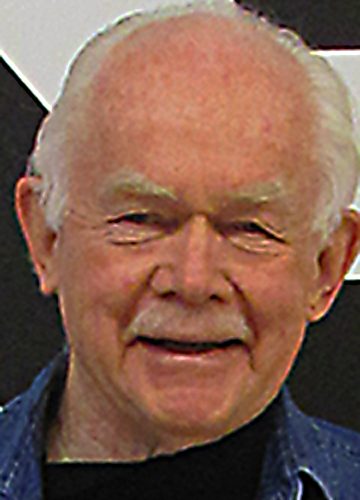Humans Are Experiencing the Planet’s Limits

Earth Day was different this year. Filmmaker Michael Moore released his bombshell climate change documentary, Planet of the Humans, on YouTube on April 21, the eve of the 50th anniversary of Earth Day. The film argues that many of us having been living in the illusion that renewable energy can replace fossil fuels as our primary energy sources. The documentary claims that the climate movement has been bought and sold by billionaire capitalists. And that the only reason environmentalists don’t talk about population control is because “it would be bad for business.”
You can see it at https://www.youtube.com/watch?v=Zk11vI-7czE.
And you should see it. This film “is not expected to be a comfortable beginning to the needed conversation” especially for those who treat solar and wind energy like ‘sacred cows’” said Jeff Gibbs who wrote, directed, and produced Planet of the Humans in an interview at the Traverse City Film Festival in July 2019.
He was right. The film absolutely decimates biomass energy as a renewable resource. Even more disturbing is the damning of solar and wind energy as the green energy means by which to eliminate fossil fuels.
For seven years starting in 2002, I served as the Public Information Officer for Russell Biomass, LLC. It was a failed seven-year effort to build a 50MW commercial biomass power plant in Russell, MA. I am now questioning my strong advocacy for this project. It is not about the technology itself, but about the fuel supply – wood – required to operate the power plant. A study prompted by citizen opposition to the power plant found that biomass-fired electricity would result in a 3 percent increase in emissions over coal-fired electricity in 2050. Aside from the fact that coal has the highest greenhouse gas emissions per kilowatt-hour of energy produced of any fossil fuel, I now question what I believed 18 years ago.
So it is with wind energy. Back in my biomass days, I saw that the enormous footprints that commercial wind required, the limited life of the machines themselves, the enormous cost of the technology and the intermittent nature of wind power made me question the efficacy of wind power.
What Planet of the Humans made me question was my enthusiasm for solar energy. The file examines solar energy in the same way it examines wind energy.
Jeff Gibbs is also the primary protagonist in the film. He opens the film by asking a series of young people this question; ‘I’ve got a question: how long do you think we humans have?’” The answers range from I dunno to a hundred years and in between.
Gibbs leads us to all the people and places he investigates. One of the people he interviews is Richard Heinberg, a Senior Fellow at the Post Carbon Institute. Heinberg is regarded as one of the world’s foremost advocates for a shift away from our current reliance on fossil fuels.
In commenting upon the documentary’s mixed responses, Heinberg wrote that he found that “the transition to renewables is going far too slowly to make much of a difference during the crucial next couple of decades.” He said it would be “gobsmackingly expensive if we were to try replacing all fossil fuel use with solar and wind.”
“Is it true that mainstream enviros have oversold renewables? Yes.” Heinberg says. “They have portrayed the transition away from fossil fuels as mostly a political problem; the implication in many of their communications is that, if we somehow come up with the money and the political will, we can replace oil with solar and continue living much as we do today, though with a clear climate conscience. That’s an illusion that deserves shattering.”
“In the energy world, there is no free lunch,” Heinberg said. “Further, the ways we use energy today are mostly adapted to the unique characteristics of fossil fuels, so a full transition to renewables will require the replacement of an extraordinary amount of infrastructure in our food system, manufacturing, building heating, the construction industry, and on and on. Altogether, the only realistic way to make the transition in industrial countries like the US is to begin reducing overall energy usage substantially, eventually running the economy on a quarter, a fifth, or maybe even a tenth of current energy.” To which he adds, “There are too many human beings using too much, too fast.”
In an article Heinberg wrote for the Post Carbon Institute, he said the film leaves viewers with no sense of hope for the future. I understand why Gibbs made that choice. Too often, ‘hopium’ is simply a drug we use to numb ourselves to the horrific reality of our situation and its causes – in which we are all complicit.”
“Yet, however awful the circumstance,” Heinberg continues, “we need a sense of human agency. In the face of the pandemic, many of us are reduced to sitting at home sewing facemasks; it seems like a paltry response to a spreading sickness that’s taking tens of thousands of lives, but it’s better than sitting on our hands and saying ‘Woe is me.’ The same goes for climate change: figuring out how to eat lower on the food chain, or how to get by without a car, or how to reduce home energy usage by half, or growing a garden might seem like trivial responses to such an overwhelming crisis, but they get us moving together in the right direction.”
The other elephant in the room is the profit motive. “The reason we’re not talking about over-population, consumption and the suicide of economic growth,” Gibbs says, “is that it would be bad for business, especially the cancerous form of capitalism that rules the world, now hiding under a cover of green.
Gibbs closes his film saying “that awareness alone can begin to create the transformation. There is a way out of this. We humans must accept that infinite growth on a finite planet is suicide. We must accept that our human presence is already far beyond sustainability…and all that implies. We must take control of our environmental movement and our future from billionaires and their permanent war on planet Earth – they are not our friends. Less must be the new more, Gibbs says, “and instead of climate change we must at long last, accept that it’s not the carbon dioxide molecules destroying the planet, it’s us. It’s not one thing, but everything we humans are doing – a human caused apocalypse. If we get ourselves under control, all things are possible. And if we don’t…”
Richard Heinberg says, “Planet of the Humans is not the last word on our human predicament. Still, it starts a conversation we need to have, and it’s a film that deserves to be seen.”







